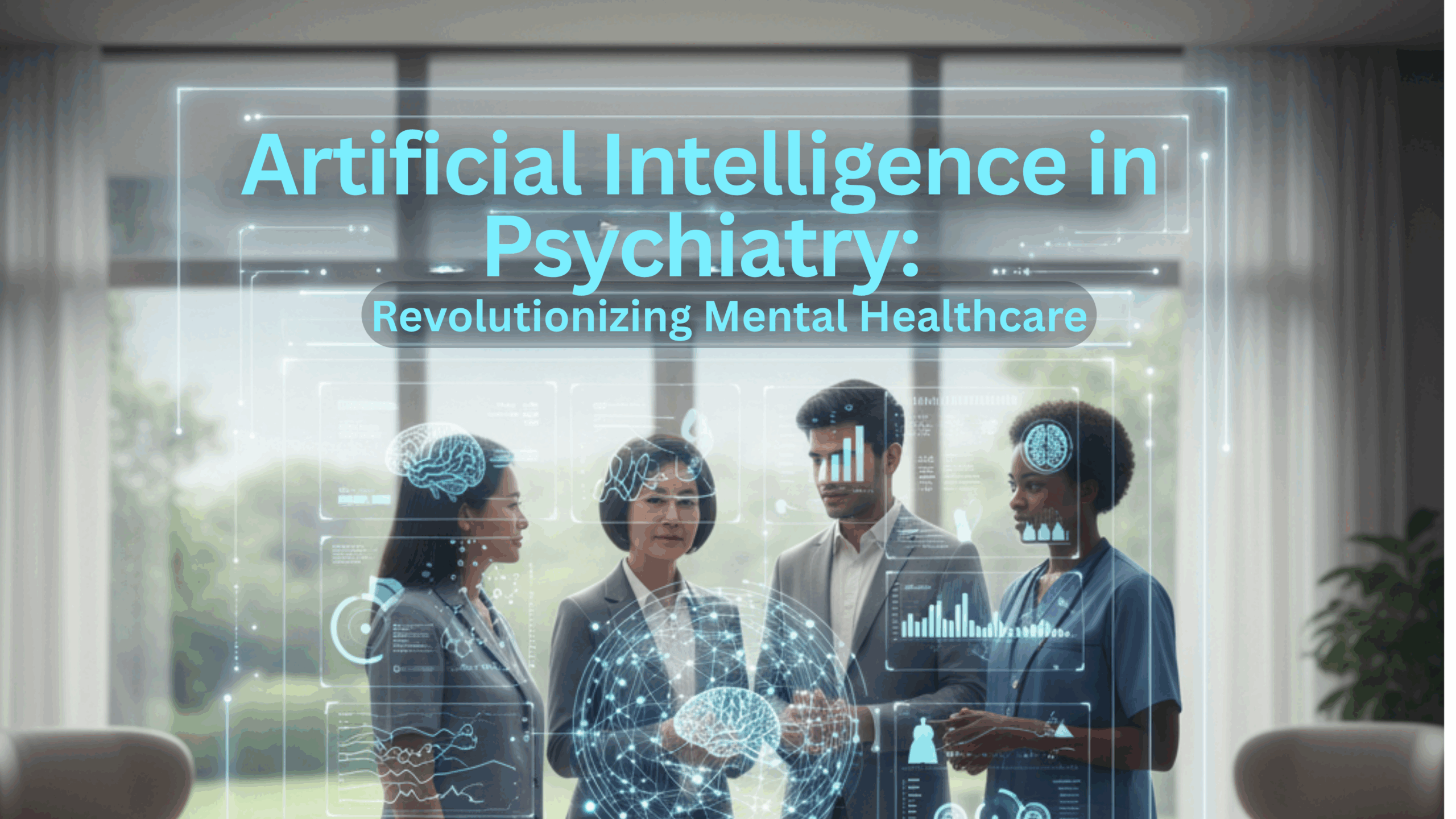Introduction: A Spark of Digital Creativity Imagine asking an AI image creator to paint something that hasn’t ever existed anywhere, […]
Artificial Intelligence in Psychiatry: Revolutionizing Mental Healthcare

Is AI taking our jobs? What help is AI for doctors? There will be no scope for doctors if AI takes over. Hearing this for the past 1/2 years made me question if it’s that bad. What actually is AI?
Artificial Intelligence (AI) refers to the simulation of human intelligence by machines, especially computer systems, to perform tasks that normally require human thinking and learning. These tasks include reasoning, problem-solving, perception, decision-making, and understanding language.
Simply stating AI enables computers to “think,” “learn,” and “adapt” like humans using data, algorithms, and experience.
AI And Psychiatry
Artificial Intelligence (AI) has rapidly evolved from being a technological curiosity to a practical clinical tool. Psychiatry traditionally is considered a human-centered specialty (people often joke that it will remain safe if jobs are lost due to AI), and AI is now reshaping the way clinicians diagnose, monitor, and treat mental illnesses.
The combination of data science, neuroscience, and digital technology has opened new doors for precision psychiatry, early detection, and accessible mental healthcare.
Diagnostic and Predictive Applications
One of the most significant uses of AI in psychiatry lies in diagnosis and early detection.
Machine learning algorithms can analyze subtle patterns in voice tone, facial expressions, and linguistic style to detect signs of depression, schizophrenia, or bipolar disorderoften before they are clinically apparent.
Studies have shown that smartphone sensors and social media activity can predict mood fluctuations or suicidal tendencies.
AI models such as IBM Watson and Mindstrong Health platforms use behavioral data to identify early cognitive decline or affective changes, offering psychiatrists valuable predictive insights.
Not to ascertain that psychiatric human touch is always required to make a correct diagnosis.
Personalized and Precision Treatment
Psychiatric treatment often relies on trial-and-error prescribing, especially with antidepressants and mood stabilizers.
AI has the potential to minimize this uncertainty. By analyzing genetic, neuroimaging, and clinical data, machine learning can predict which medication or therapy will be most effective for a specific patient. This approach, known as precision psychiatry, tailors interventions to individual biological and psychological profiles, ultimately improving treatment outcomes and patient satisfaction.
But in a country like ours, this can still be implicated only in tier 1 cities and a few tier 2 cities.
Data Monitoring and Early Intervention
AI enables continuous mental health monitoring through wearable devices and smartphones. Changes in sleep, speech, activity, and heart rate can serve as digital biomarkers, alerting clinicians to possible relapse or suicidal risk. Predictive models, such as those used in Crisis Text Line, have already shown success in identifying high-risk individuals and triggering timely interventions.
Ethical and Practical Challenges
Despite its promise, AI in psychiatry raises serious ethical and practical concerns. Privacy and data security are paramount, as mental health data is highly sensitive. The Mental Health Care Act gives the right to privacy and confidentiality to patients, which can be violated in a few cases.
Moreover, algorithms trained on biased datasets may perpetuate cultural or gender bias. There is also the fear that excessive reliance on AI may reduce human empathy, which is central to psychiatry. Hence, AI should be viewed as an aid, not a replacement for psychiatrists.
The Future of AI in Psychiatry
The future lies in collaborative psychiatry, where human expertise and AI-driven analytics work hand-in-hand.
Integration with electronic health records, wearable sensors, and digital therapy platforms will make psychiatric care more proactive and personalized.
As technology matures, AI can enhance the psychiatrist’s ability to understand, predict, and heal the mind, bringing data and compassion together in unprecedented ways.

